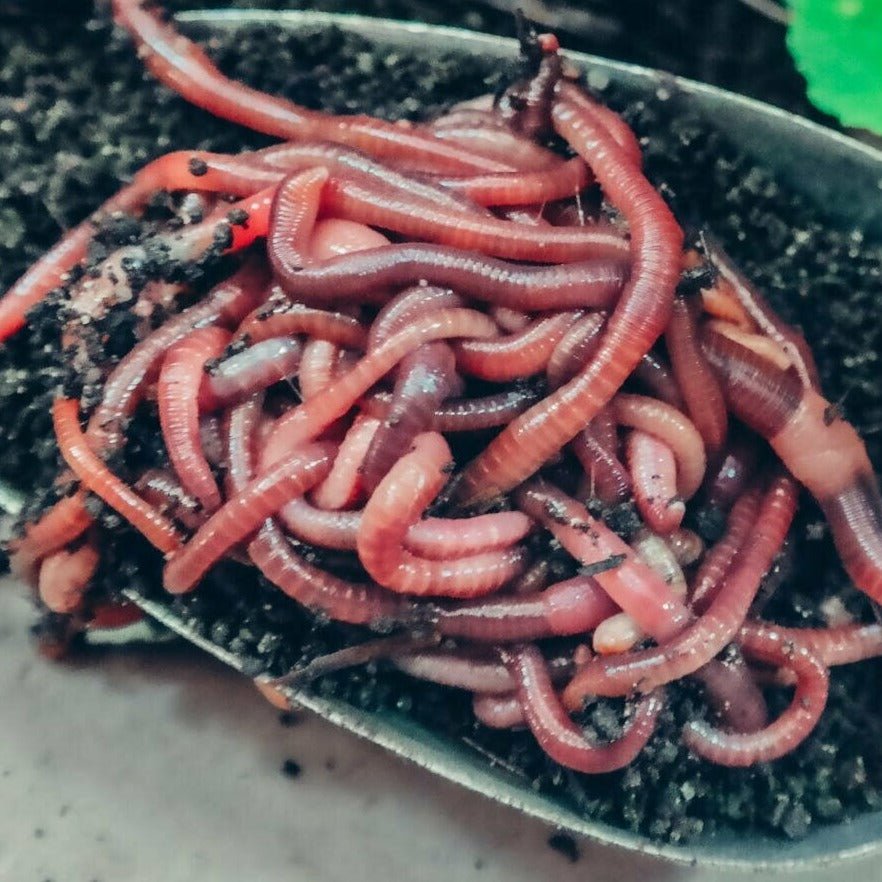The Definitive Guide to Red Wiggler Express
The Definitive Guide to Red Wiggler Express
Blog Article
The Red Wiggler Express Ideas
Table of ContentsRed Wiggler Express - TruthsHow Red Wiggler Express can Save You Time, Stress, and Money.Some Of Red Wiggler ExpressThe Ultimate Guide To Red Wiggler ExpressThe 45-Second Trick For Red Wiggler Express
And the prospering Red Worm populace? Even in the stack that was established up directly in front of backyard composters with existing Red Worm nests.
Lots of selections, including Red Wigglers, European Nightcrawlers, and Lumbricus varieties were brought over from the European continent. Yet here's the thingNative or not - and as skilled as they go to having the ability to survive in a wide-range of environments and conditions -. To put it simply, they are far a lot more most likely to hang around in any kind of active composting systems you have established, than they are to wander off and start wrecking the environment.
Origins call for oxygen for respiration and depend on smooth airflow within the soil to flourish. Nevertheless, when it rainfalls, soil can come to be saturated with water, lowering the oxygen available and impeding nutrient absorption - Red Wiggler Express. To maintain an optimal equilibrium, the dirt needs to enable water to drain properly, leaving enough space for air to sustain origin health and wellness
Everything about Red Wiggler Express

When it comes to worms for composting, what enters your mind? If you were an earthworm breeder, dealer, or plain gardener, then you 'd understand that red wiggler worms are the ideal worms for vermicomposting. To get more information concerning these planet marvels, checked out several of the red worm facts below.
(https://www.zipleaf.us/Companies/Red-Wiggler-Express)But if they stretch their bodies, you'll be able to see the red stripes on their skin. When elevating worms such as red wiggler worms, you should be able to know just how to profit them. When you have the ability to maintain and look after their environment well, and additionally feed them the right kinds of natural wastes, then they'll be able to generate nutrient-packed and quality-rich worm castings for you (likewise called worm poop or compost).
9 Simple Techniques For Red Wiggler Express
So, what do worms consume? Well, these red wriggler worms can be fed with kitchen area scraps and yard wastes. So, any kind of rotting organic things will simulate veggie and fruit peels, smashed egg shells, made use of tea bags, coffee grounds, grass trimmings, dry fallen leaves, and others. Make sure not to feed them foods that are oily, citrusy, or has meat or dairy in them.

This actions makes them fit for life in worm bins, compost piles, and other confined rooms where organic waste is abundant. Creating an ideal environment for red wigglers needs a thoughtful strategy. Consider the following important aspects to look after red wigglers in the house and ensure their wellness: Utilize a bed linen of shredded newspaper or cardboard.

Red wiggler worms duplicate by laying small, lemon-shaped eggs in safety cocoons. These cocoons are typically deposited in the bedding and hatch into baby worms within a few weeks.
Little Known Questions About Red Wiggler Express.
Their flexibility and durability have made them a preferred option for vermicomposting in various areas around the globe. Yes! They can survive from a variety of 32F to 90F. They are extremely adaptable pests. Think about safety steps for really extreme temperature levels such as: Protecting the worm container with layers of straw or leaves.

When caring for your red wigglers it is very important to keep in mind to: 1) K.I.S.S (Maintain it Simple) and 2) every little thing in small amounts. These regulations use to feeding your garden compost worms, watering your worm bins, and nearly every little thing else associated with taking care of them. Just remember - you can constantly add more food later on (however it's hard to get rid of feed once it's been included to a bin!).
Because I fed the red wigglers and garden compost worms as well much, they weren't able to maintain and gradually the older food went uneaten and created anaerobic problems that killed the worms. Fortunately is that there are extremely basic actions you can require to ensure this does not occur! Here're the 6 golden policies for how typically and just how much to feed your worms: Regulation # 1: Small amounts! You can always include even more food later.
Get This Report on Red Wiggler Express
Leftover food will cause anaerobic problems that will certainly kill your live worms. It is okay to spray a little of their initial bedding (which needs to already be in the container) over the food, but the food should never be hidden and ought to show up to your eye. Regulation # 5: See rule # 1! Rule # 6: After the initial feeding, feed the worms 1/3 to 1/2 of their weight.
Report this page